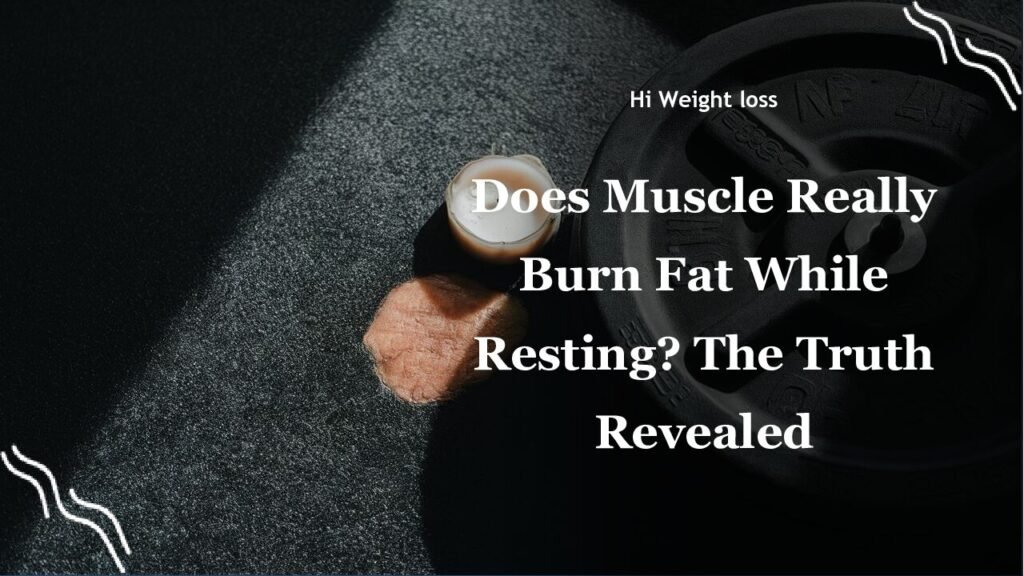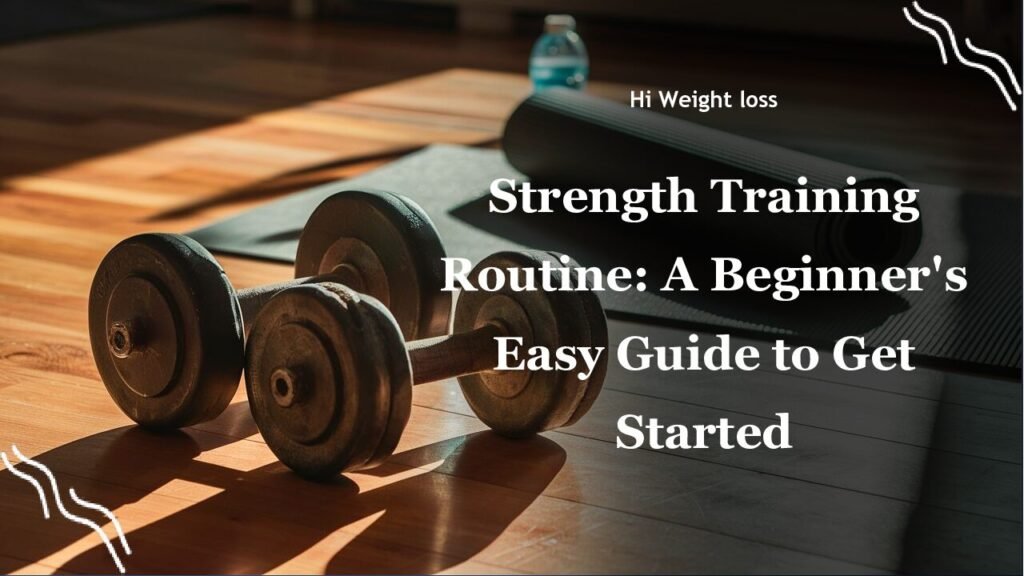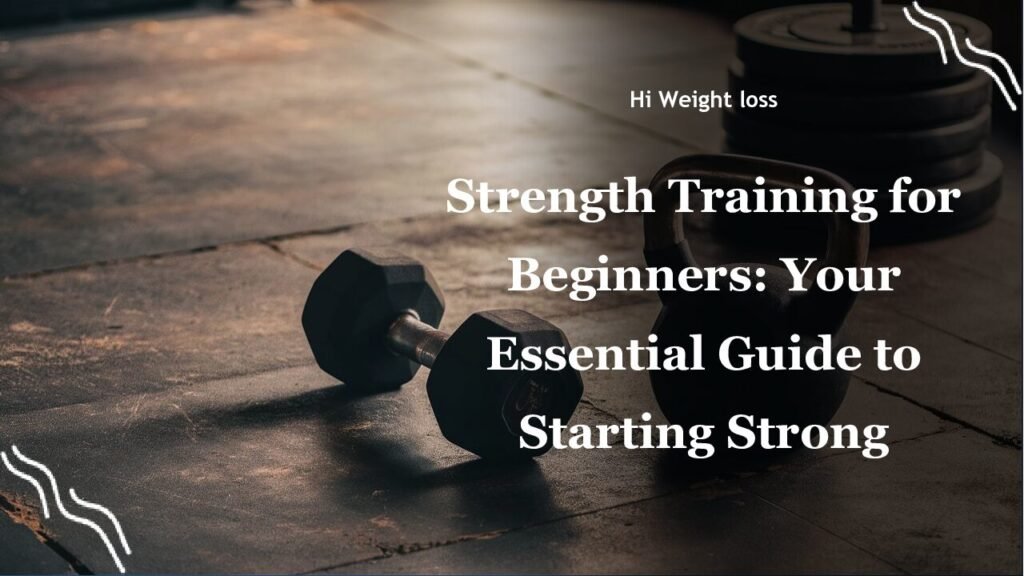“`
Have you ever heard the claim that muscle is a metabolic furnace, burning tons of fat even when you’re just chilling on the couch? It’s a popular idea, and many people, including myself at one point, believed that packing on muscle would lead to effortless fat loss. The reality, however, isn’t quite that dramatic. While muscle *does* burn calories at rest, the actual amount is often exaggerated, and this article will delve into the science behind the resting metabolic rate and clarify how much your muscles contribute to it.
Does Muscle Burn Fat While Resting?
The notion that muscle significantly burns fat while resting is a common misconception. Many believe that a pound of muscle burns a substantial amount of calories, sometimes even touted as 50 calories per pound, which is just not true. When I first started my fitness journey, I was under the same impression. I remember thinking that every rep in the gym was directly contributing to a huge calorie burn later that evening while I was sleeping. The idea was motivating, but understanding the science changed my approach to fitness.
The Truth About Muscle and Resting Metabolic Rate
According to Claude Bouchard of the Pennington Biomedical Research Center, muscle only contributes about 20-25% to our resting metabolic rate (RMR). What is resting metabolic rate? This is the rate at which your body burns calories while at rest. RMR includes basic functions such as breathing, circulation, and cell repair. So, while muscle plays a role, it’s not the main driver of your resting calorie burn.
Here’s the key point: A pound of muscle burns approximately six calories per day at rest, whereas a pound of fat burns only about two calories. This means muscle is indeed more metabolically active than fat, but the difference isn’t as groundbreaking as often assumed.
I often see people solely focusing on building muscle to burn fat, only to find their progress slower than anticipated. It’s important to have a balanced perspective. Building muscle definitely has many advantages, like strength and overall health, but it’s not a magic solution for fat loss. So while building muscle is good, it’s crucial to see the whole picture of your metabolism.

How Much Fat Does Muscle Burn While Resting?
Let’s break down the numbers further: for every pound of muscle, you burn about six calories per day while at rest. On the other hand, one pound of fat burns about two calories. The difference is there, a three-fold increase but it isn’t a huge figure. So, while it’s true that muscle is more metabolically active, these figures are considerably less than the claims you see in some fitness magazines. For example, someone with 10 more pounds of muscle compared to someone with the same weight but more fat will burn about 40 calories more per day just resting. It’s not much, but over time, it does add up and has many other health benefits.
Does Muscle Mass Increase Resting Fat Burn?
Yes, having more muscle mass does increase your resting fat burn, though not in the way many might expect. If you increase your muscle mass, you’ll slightly increase the calories you burn at rest. A “pound of muscle” burns approximately six calories at rest, while a pound of fat burns about two. So, you can see why people think it’s the key. While the difference in calories burned is not drastic, it still affects your overall metabolic rate.
When I was in college, I focused heavily on weight lifting, driven by the belief that building more muscle would make a big difference in my calorie expenditure while resting. It made a difference and it also helped me to gain functional strength that I needed in daily life. It wasn’t the quick fix I expected for fat loss, but it did positively influence my body composition and increase my overall health.
The Broader Picture: Metabolism and Weight Management
It’s important to consider that metabolism is complex and affected by many factors. “Genetics, age, sex and body size all play a role”. Diet and activity levels are key to managing weight. Muscle building is one tool in your toolbox, but it shouldn’t be the only one. It is important to consider building muscle as part of a healthy lifestyle. I found that combining a good diet with exercise and enough sleep made the biggest difference in my weight management goals.
To put it simply, thinking that just building a lot of muscle will solve your fat loss problem, is a misnomer. Yes, it can help and it does help, but it needs to be supported with a proper lifestyle.
Key Takeaways on Muscle and Resting Fat Burn
Here’s a summary of what we’ve discussed:
- Muscle *does* burn calories at rest, but not as much as often claimed.
- A pound of muscle burns approximately six calories per day, while a pound of fat burns about two.
- Muscle contributes to only 20-25% of your resting metabolic rate (RMR).
- Increasing muscle mass does increase your overall RMR, but the effect is modest.
- For effective weight management, combine muscle building with a balanced diet and consistent exercise.
It’s very easy to get caught up in the hype of quick fixes, but for sustainable results, you have to play the long game. Now let’s summarize the numbers.
| Factor | Calorie Burn at Rest |
|---|---|
| 1 pound of muscle | Approximately 6 calories per day |
| 1 pound of fat | Approximately 2 calories per day |
Conclusion
So, does muscle burn fat while resting? The answer is yes, but the impact isn’t as significant as often believed. It’s not a magical solution for weight loss, but it is a helpful tool. I know I was a bit disappointed when I understood this in the past. I have also seen many fitness enthusiasts in the gym who believe that simply adding muscle will solve all their problems with fat loss, and that is just not the case. Focus on building strength, adding muscle, eat healthily, be consistent, and that will take you much farther than believing that muscle is a metabolic furnace. Remember that building muscle is more than just burning calories, it makes you stronger and improves your overall health. The key to success is a balanced, holistic approach that looks at the whole picture.
Now that you know the truth about how muscle burns calories, why not try some new fitness routines this week? Share this article with your friends and help bust some myths about muscle and fat loss!
FAQ
Does muscle burn fat while resting at night?
Yes, muscle does burn calories, including fat, while you’re sleeping. However, the amount is limited, with one pound of muscle burning approximately six calories per day, which is not dramatic in terms of overall weight loss.
How much fat does muscle burn while resting?
A pound of muscle burns about six calories per day while at rest. Compared to a pound of fat, which burns about two calories, it’s a difference, but not a big one.
Does muscle mass increase resting fat burn?
Yes, increasing your muscle mass will slightly increase your resting fat burn. However, it’s not a drastic increase. It’s essential to view muscle growth as one component of a healthy lifestyle, not the only component. You can also “check out this study” that also backs up this claim.
Should I focus solely on muscle building for fat loss?
No, while muscle building is beneficial, it should not be your only focus. A comprehensive approach involving a balanced diet, cardio exercises, adequate sleep, and strength training is more effective for fat loss.
What is the best approach for increasing resting calorie burn?
The best approach is a combination of building muscle through strength training, maintaining a healthy diet, and engaging in regular physical activity. Focus on lifestyle and not quick fixes.
“`



